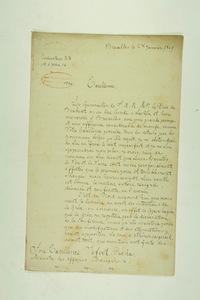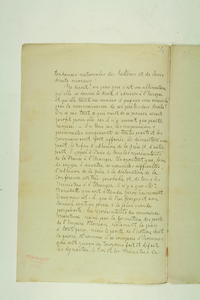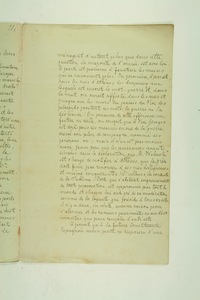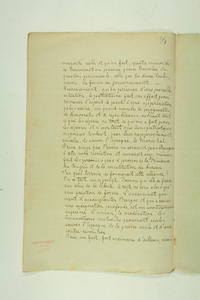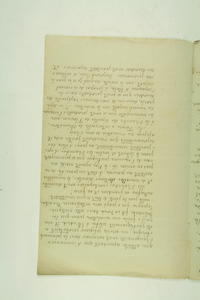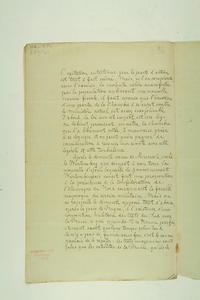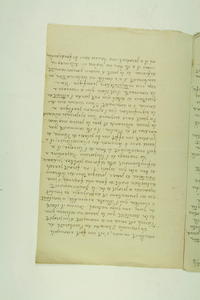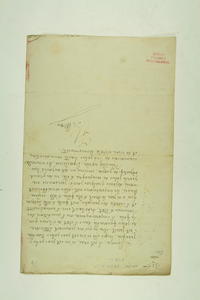Ottoman Diplomats
Letters from the Imperial Legation in Brussels (1849–1914)
Synopsis
In his rather positive report, Glavany firstly writes about the funeral of prince Leopold, Duke of Brabant and son of King Leopold II. He does not give a lot of further information, since the Minister for Foreign affairs, Safvet Pacha, received Belgian newspapers. However, Glavany adds a positive note: the King and Queen were of course seriously affected by his death, but their health was still fine, and the entire nation was devoted and believed in the future. Secondly, he mentions that he received news from Copenhagen about Greece’s intentions: Greece did not reject the declaration of the conference, but wanted a mention of the Hellenic national tendencies and their moral rights. This caused optimistic as well as pessimistic reactions in the press. Greek representatives of the maritime trade wanted peace at all costs, because they were heavily affected by the closed ports of the Ottoman Empire. Glavany states that the Greek King George, however, seemed to have taken arrangements to start war. The Sublime Porte did not react to these provocations, which – according to Glavany – proves its moderation and loyalty. Thirdly, Glavany mentions the Spanish assembly, containing four minorities and no real majority. In his opinion, only patriotism would lead to rapprochement and save Spain. In any case, Glavany observed that the country was on its way to tolerance, since there had been a protestant religious service in Madrid. Fourthly, the Portuguese parliament had been dissolved and new elections would follow. Fifthly, he describes an incident in the Italian parliament, concerning new taxes. Sixthly, about Germany, Glavany remarks that the smaller states were merely Prussia’s satellite states. Seventhly, he writes about an Austrian bill on the judicial context of the press. Glavany hopes for liberal support in order to pass the needed reforms. Eighthly, he notes that the message of Napoleon III had received a pacific interpretation in the public opinion of Austria, Britain and Germany. Glavany concludes with a positive note: Europe has not become more pacified, but it has also not become more troubled.
Facsimiles
How to cite
If you use this website for your own research, we kindly ask you to mention the following reference in your publications:
Consulted online at Ottoman Diplomats: Letters From the Imperial Legation in Brussels (1849–1914) (2014 Edition), Centre for Political History (PoHis), University of Antwerp, <http://dighum.uantwerpen.be/ottomandiplomats/>.
